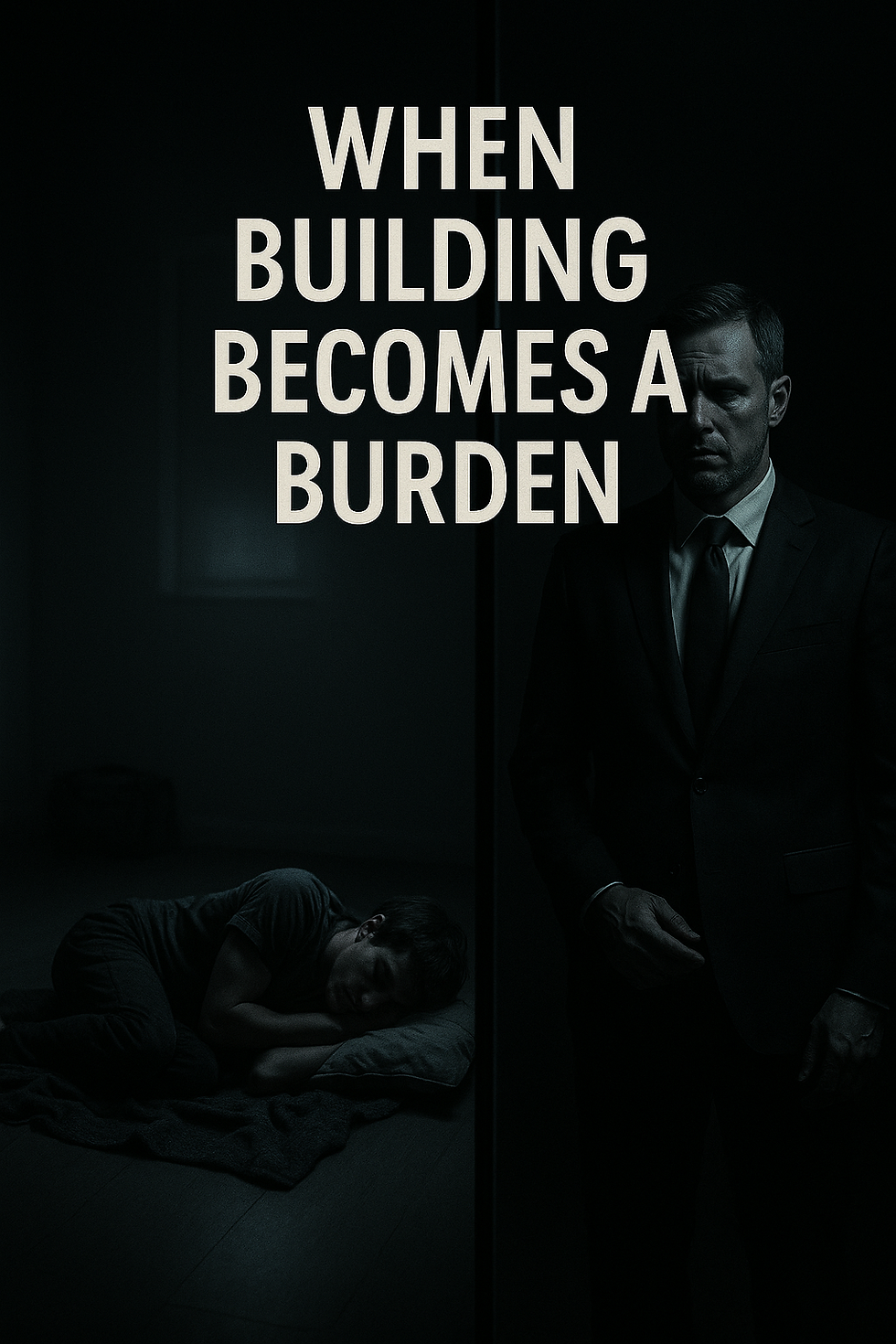Why Waiting Until You’re Over 25 to Lose Your Virginity Might Be Worth It
- Warren

- Jan 30
- 4 min read
When it comes to losing your virginity, society tends to offer two competing messages: some suggest it’s best to get it over with early, while others promote the idea of waiting—whether for personal growth, religious reasons, or simply finding the right person. But what if waiting until you’re over 25 to lose your virginity isn’t just about timing—it’s about fostering healthier emotional, psychological, and even sexual outcomes?

The Risks of Losing Virginity Too Early
There’s no magic number for the “right” age to lose your virginity, but research shows that those who engage in sexual activity too early may be at a higher risk of developing certain emotional and behavioral issues. Early sexual experiences can sometimes result in:
1. Emotional Unpreparedness
Engaging in sex before you’re emotionally ready can create confusion, anxiety, and attachment issues. For many, early experiences lack the maturity needed to handle the emotional intensity that can come with intimacy.
2. Poor Relationship Choices
Early sexual activity is often linked to impulsive relationship decisions. Without a solid understanding of oneself, it’s easier to end up in relationships driven by physical attraction rather than mutual respect and compatibility.
3. Increased Risk of Regret
Studies show that individuals who lose their virginity at a very young age are more likely to feel regret about how or when it happened, especially if the experience wasn’t consensual or emotionally fulfilling.
4. Higher Likelihood of Risky Behaviors
Early sexual activity has also been correlated with a higher likelihood of engaging in risky sexual behavior, such as unprotected sex, which can lead to unintended pregnancies and sexually transmitted infections (STIs).
The Psychological Benefits of Waiting
On the flip side, waiting until you’re older to lose your virginity—particularly until your mid-20s or later—can provide several psychological and emotional benefits:
1. Emotional Maturity
By the time you reach your mid-20s, you’re more likely to have a stronger sense of self and emotional intelligence. This makes it easier to form healthier, more balanced relationships and to navigate the emotional complexities of sexual intimacy.
2. Better Relationship Satisfaction
Research suggests that individuals who wait until they are older to have their first sexual experience tend to report higher levels of satisfaction in their long-term relationships. This may be because they’ve had more time to understand what they want and need in a partner.
3. Improved Communication
Waiting gives you the opportunity to develop better communication skills, which are crucial for a fulfilling sexual relationship. Being able to openly discuss boundaries, consent, and desires leads to more positive and respectful experiences.
4. Reduced Pressure
By waiting until you’re ready—mentally, emotionally, and physically—you reduce the pressure and anxiety that often come with early sexual experiences. This can lead to a more positive, affirming first experience.
The Myth of Abnormal Sexual Behavior
One common misconception is that waiting too long to lose your virginity can lead to abnormal sexual behavior or disorders. While it’s true that sexual repression or shame can create unhealthy attitudes toward sex, simply waiting until you’re older isn’t the same as repressing your desires.
In fact, if you approach waiting with a healthy mindset—seeing it as a personal choice rather than something imposed by fear or guilt—you’re more likely to develop a well-rounded and positive relationship with sex.
What does lead to abnormal sexual behavior, according to psychologists, is a lack of education, poor communication, and environments that stigmatize sexual exploration. Waiting doesn’t mean ignoring or suppressing your sexual feelings—it means acknowledging them, understanding them, and choosing to act on them when it feels right for you.
Finding Balance: Healthy Sexual Development
Sexuality is a natural part of being human, and everyone’s journey is different. The key to healthy sexual development isn’t about hitting a specific age milestone—it’s about fostering a healthy attitude toward sex, intimacy, and relationships. Whether you choose to wait or not, what matters most is that you:
• Educate Yourself: Learn about consent, safe sex, and emotional readiness. Knowledge is empowerment.
• Communicate Openly: Whether with a partner, friends, or a trusted mentor, having honest conversations about sex can help you make more informed decisions.
• Respect Your Own Boundaries: Only you know when you’re truly ready. Don’t let societal pressure rush you or make you feel ashamed for waiting.
• Avoid Judgment: Everyone’s path is different. Whether someone chooses to have sex at 18 or 28, respect their choice without judgment.
Final Thoughts
There’s no one-size-fits-all answer to when you should lose your virginity. But if waiting until you’re over 25 feels right for you, know that it can offer emotional, psychological, and relational benefits that contribute to healthier, more fulfilling sexual experiences.
Remember, it’s not about timing—it’s about readiness, respect, and creating a positive foundation for your future relationships. Whether you wait or not, what matters most is that you approach sex with awareness, responsibility, and self-respect. And when you do, you’ll be better equipped to practice all the virtues that come with a mature, healthy relationship—on your own terms.








Comments